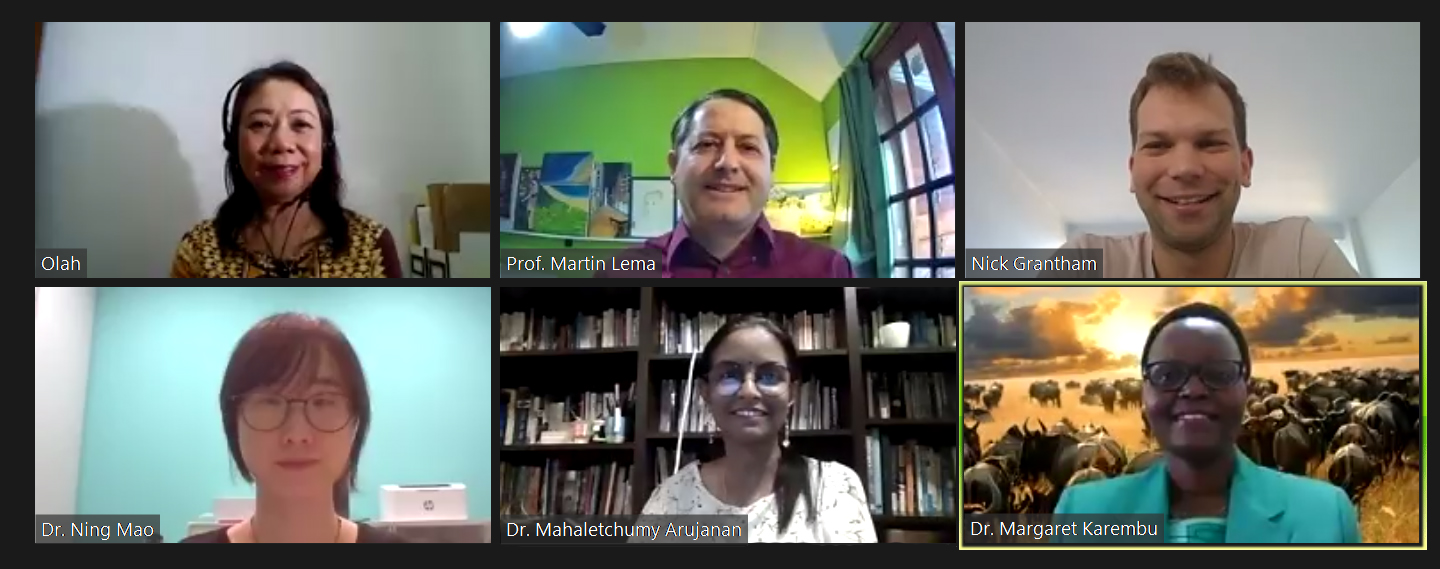
Local Investors Challenged to Support Genome Editing Start-ups in Africa
July 8, 2020| |
Private investors in Africa have been challenged to support the establishment of genome editing start-ups on the continent. This comes as it emerged that Africa, Asia, and Latin America have untapped entrepreneurship opportunities in genome editing.
Speaking in an ISAAA webinar titled ‘Genome Editing 101: Getting Ready for Business', Kudu Biotech Director Dr. Nicholas Grantham explained how the local private sector has an edge, both in terms of capital and expertise, over government when dealing with start-ups in new emerging biotechnologies. "Many large agricultural companies are willing to finance the initial stages of a genome editing business in exchange for exclusive access to new techniques or a share in the royalties; but this of course relies on the identification of a suitable project rather than a design thereof from scratch," Dr. Grantham remarked.
According to Dr. Ning Mao, the Manager of Singapore Consortium for Synthetic Biology, a favorable ecosystem is key in catalyzing promising genome editing technologies from research to commercial applications. Dr. Mao singled research capabilities, funding, incubators and accelerators of ideas, and market access as important catalysts to emergence of start-ups in developing countries. "Resulting from these initiatives, entrepreneurs can be trained and their ideas actualized into starting up a genome editing company," she said. "Vibrant investors, besides providing funding, can also provide business coaching and meaningful networks for young start-up teams," Dr. Mao added.
It emerged during the webinar that developing countries are endowed with tremendous opportunities to invest in genome editing. Among them are emerging research centers with advanced genome editing technologies, good market potential especially in the agri-tech space, growing local talent pool, and increasing online resources for entrepreneurship education. "However, lack of technology translation mechanisms, regulatory uncertainties, ineffective network to connect people with different skills, and scarce infrastructure present a challenge in emerging markets," said Dr. Mao.
Former Chair of Argentina's National Biosafety Commission, Prof. Martin Lema, revealed that Argentina has seen a drastic surge in adoption of genome editing innovations in the last four years alone. "Most of these genome editing technologies are spearheaded by local companies and public research institutions," said Prof. Lema. He noted that the direction and advances for harmonizing regulations are encouraging to entrepreneurs in this field.
The webinar was attended by more than 370 participants from around the world. Subscribe through Messenger to get updates on the upcoming ISAAA webinars.
| |
You might also like:
- Pocket K No. 54: Plant Breeding Innovation: CRISPR-Cas9
- FAO Calls for Global Coordination for a Bioeconomy that Leaves No One Behind
- European Scientists Join Forces to Enable Potential of Genome Editing
Biotech Updates is a weekly newsletter of ISAAA, a not-for-profit organization. It is distributed for free to over 22,000 subscribers worldwide to inform them about the key developments in biosciences, especially in biotechnology. Your support will help us in our mission to feed the world with knowledge. You can help by donating as little as $10.
-
See more articles:
-
News from Around the World
- ISF Urges Governments to Continue Facilitating Seed Movement without Restrictions under COVID-19 Pandemic
- Local Investors Challenged to Support Genome Editing Start-ups in Africa
- Comparison Between GM and Non-GM Maize Shows No Difference in Composition, Agronomic Traits
- Plant Tissue Engineering Improves Drought and Salinity Tolerance in Arabidopsis
- 92% Cotton, 90% Corn Areas in the US Produced with GE Seeds
- Researchers Identify Genes that Tell Plants when to Flower
-
Research Highlights
- New Potato Breeding Marker for Tuberization Identified
-
Plant
- Scientists Use TALENs for Targeted Genome Editing of Potato
-
Health
- Most Americans Supportive of Scientific Interventions to Stop COVID-19, 72% Willing to Get Vaccinated
- Genes Linked to COVID-19 Risk Inherited from Neanderthals
-
Read the latest: - Biotech Updates (January 21, 2026)
- Gene Editing Supplement (December 17, 2025)
- Gene Drive Supplement (February 22, 2023)
-
Subscribe to BU: - Share
- Tweet

